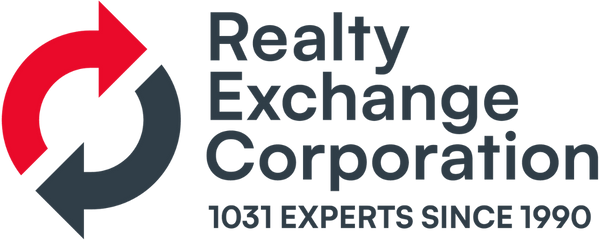1031 exchange services
We provide quality, experienced 1031 services to our clients and partners at every step of the exchange process
Take the next step toward tax-free real estate growth.
Fill out the form
Give us a call (703) 754-9411
Hello, My Name Is Bill Horan
Are you considering a 1031 exchange? My Team and I Are Here To Help You! Here are a few things you should know.
To be a successful 1031 tax-deferred exchange, certain criteria must be met for the real estate to be like-kind. Since our founding in 1990, Realty Exchange Corporation’s sole mission is to provide qualified intermediary service to real property investors and their advisors for 1031 exchanges. The process is stressful and a bit complicated, but we can help. We take care of everything for you. We also have put together guides, videos, classes, and blogs to help you get familiar with the process.
How do 1031 Exchanges work?
In real estate, a 1031 exchange is a swap of one investment property for another that allows capital gains taxes to be deferred. A 1031 exchange can be very complicated if you don’t know the rules and the process.
What are the key rules?
What are the steps to an exchange?
What is a 1031 Exchange or tax-deferred exchange?
In real estate, a 1031 exchange is a swap of one investment property for another that allows capital gains taxes to be deferred. The term—gets its name from Internal Revenue Code (IRC) Section 1031.
It is a process that allows a taxpayer to exchange investment or business property and defer the payment of the capital gains tax. Normally there is a delay between settlements of the property being relinquished and the replacement property.
What property qualifies?
To be a successful tax-deferred exchange, certain criteria must be met for the real estate to be like-kind. Basically, these are:
– Both properties must be in the United States.
– The Relinquished Property currently must be used by the exchanger for investment, business, rental or production of income.
-The exchanger must hold the new Replacement Property for investment, business, rental or production of income.
-The Replacement Property must be identified within 45 days.
-The Replacement Property must be received within 180 days (or the federal tax due date, including extension, if earlier).
What is the 45-Day Rule
The first relates to the designation of a replacement property. Once the sale of your property occurs, the intermediary will receive the cash. You can’t receive the cash, or it will spoil the 1031 treatment. Also, within 45 days of the sale of your property, you must designate the replacement property in writing to the intermediary, specifying the property that you want to acquire.
The IRS says you can designate three properties as long as you eventually close on one of them. You can even designate more than three if they fall within certain valuation tests.
How are capital gains figured?
The potential capital gains that can be deferred is simply the profit plus all the depreciation taken on the property being relinquished.
What are the reinvestment requirements in an exchange?
The total cash equity (equity less selling costs) from the relinquished property must be held in a qualified escrow account and must be reinvested in the replacement property(ies). The cash not reinvested (known as “cash boot”) is subject to capital gains tax.
The replacement property must have mortgage debt or new cash added, equal to or greater than the mortgage paid off, or assumed on the relinquished property.
Reverse Exchanges
A reverse exchange is a type of exchange for investors who wish to acquire a replacement property before they settle on their relinquished property.
Improvement Exchanges
An improvement exchange is a type of exchange for investors who wish to have improvements completed on their replacement property before they acquire it using their exchange escrow funds.

What People Are Saying
Very Responsive
We found your company very responsive. Bill spent a lot of time explaining the details of the transaction. Could not have done better.
– NIMAX LLC
Excellent
Provided prompt, professional, patient, and friendly service to a 1031 newbie!! Excellent!!
-DeHaven
Impressed
I was completely impressed! I am a real estate agent and will certainly recommend you.
-Sylvia Miller
Are 1031 Exchange services available in my area?
We are proud to offer service to all cities, counties, and areas in Virginia and the surrounding areas, including, but not limited to:

